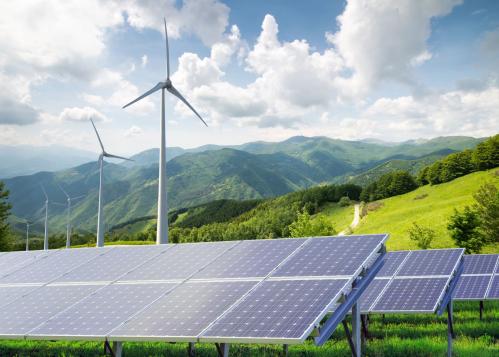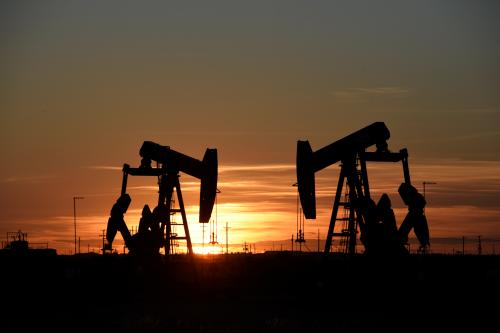Little over one year ago, my colleague Geert Greving and I published a short piece describing the upheaval in the Netherlands caused by an increased amount of seismic activity that was linked to natural gas extraction. At the time, Minister of Economic Affairs Henk Kamp agreed with the Dutch parliament and the stakeholders (the Dutch state, Shell, and Exxon Mobil) to reduce annual production from the main Slochteren natural gas field between 2014 to 2016. One year later, it is clear that this is not the end of the turmoil in the Dutch polder.
Continued earthquakes and local opposition
Logically, the earth tremors related to natural gas did not end after the deal of February 2014. Over the course of last year, the area in the Dutch north, around Groningen, registered over 80 small earthquakes, some of which did significant damage to local residencies and increased uncertainty amongst citizens. Local opposition continued and has been very vocal, with politicians from the north calling for more generous compensation for the damage. Citizens have become increasingly skeptical about decisions made by the government in The Hague, in cooperation with the operators of the field, joined in NAM (the operational up-stream company of Exxon Mobil and Royal Dutch Shell).
That skepticism further increased when the Dutch Safety Board published a report in early 2015 about the role that public safety had played in past decision-making related to natural gas extraction in the Netherlands. The board concluded:
Until the beginning of 2013, the safety of the citizens of Groningen in relation to induced earthquakes had no influence on decision-making on the exploitation of the Groningen gas field. The parties concerned deemed the safety risk to the population to be negligible and thus disregarded the uncertainties surrounding this risk assessment. The Dutch Safety Board therefore concludes that the parties concerned failed to act with due care for citizen safety in Groningen with regard to the earthquakes caused by gas extraction.
Partly incentivized by these findings, those citizens who suffered damage, have now become a political tsunami. As a result, the Dutch Parliament and citizens demand instant action.
Further reducing natural gas production
Following this publication, Minister Kamp came under pressure from the Dutch parliament to further reduce natural gas production in the Netherlands. Within the government, formed by a coalition between Kamp’s liberal party and the social-democrats, unrest increased as well. Like other European Union member states, the Netherlands too has been facing a tough economic tide, with unemployment levels being relatively high. Over the last two years public support for the government has eroded significantly, mostly due to unpopular budget cuts. Because a significant share of revenues from natural gas sales is directly allocated to the government budget, further reducing gas production will require additional cuts elsewhere.
Minister Kamp first suggested capping natural gas production at 16.5 billion cubic meters (bcm) until July of this year without adjusting the overall annual cap. That was unacceptable for parliament and the social democrats. The political sentiment increasingly has become to keep Dutch natural gas in the ground for future generations, instead of continuing business as usual, and selling a significant amount of gas as a commodity around Europe.
Last week Minister Kamp indicated that annual production for 2015 would not be more than 33 bcm. To put this in perspective, the original production ceiling for this year was 42 bcm, and in 2012, 52 bcm was produced.
Three consequences of this decision
The outcomes of the political debate increasingly have irritated the private sector stakeholders, i.e. Royal Dutch Shell and Exxon Mobil. Without consultation the minister has been forced to give in to political and public sentiment to drastically lower the production ceiling for 2015.
Undoubtedly this decision will raise tensions in the coalition government, where liberals and social democrats will have to come up with additional measures to safeguard a balanced budget. With local elections scheduled for this spring, and in particular, the social democrats ranking poorly in the polls, one cannot exclude that induced earthquakes may bring the government to its knees.
Finally, reducing domestic natural gas production undoubtedly will drive up the share of imported natural gas in the Netherlands. Buyers will likely purchase the most competitive commodity that is available on the Dutch trading hub. In one of life’s great ironies, for the foreseeable future, those most competitive supplies will come from a country where EU leaders so fervently like to distance themselves from: Russia.



Commentary
Shaken and dramatically stirred: How earthquakes affect Dutch politics and natural gas production and bring more Russian gas to Europe
February 24, 2015